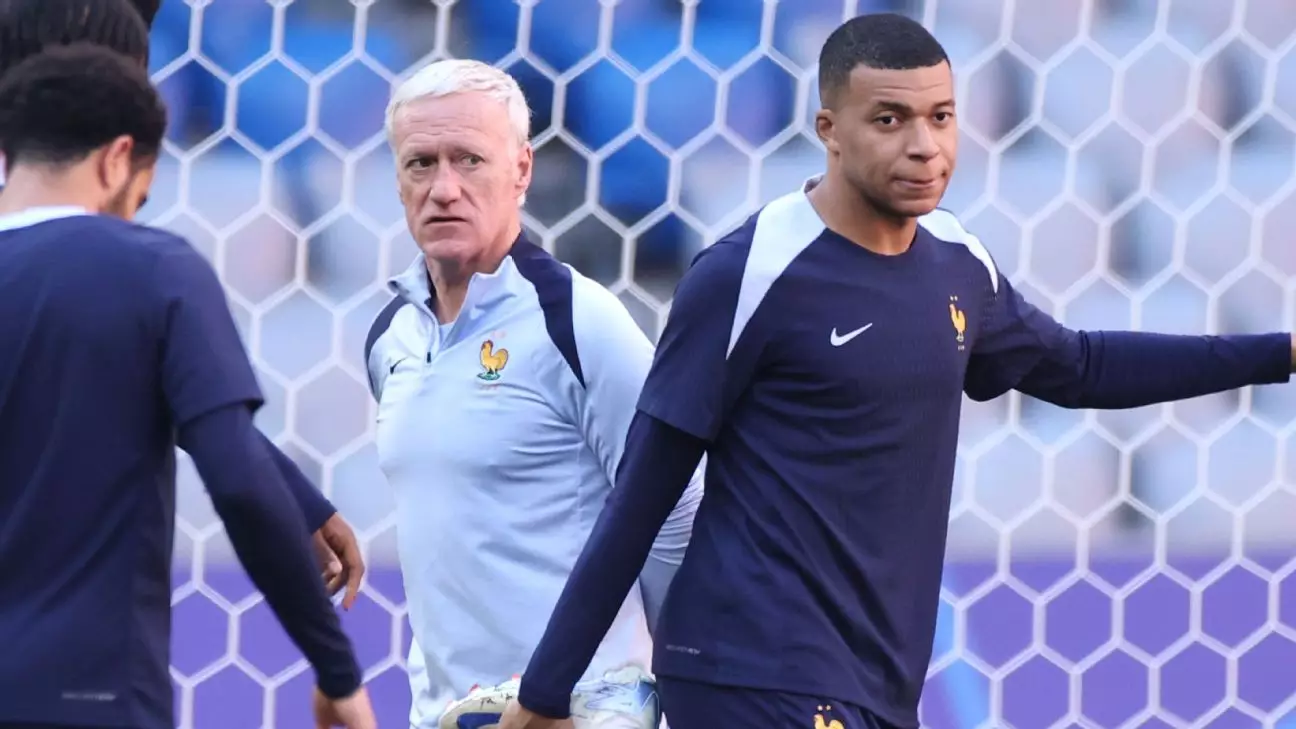In the world of football, few players have garnered as much attention as Kylian Mbappé. As the French national team prepared for a challenging UEFA Nations League match against Israel, discussions inevitably gravitated toward the star player’s conspicuous absence. Coach Didier Deschamps, faced with inquiries at a recent press conference, humorously remarked on the inevitability of questions surrounding Mbappé. However, he quickly transitioned to a defensive stance, urging the media to „leave him alone,“ and emphasizing that the focus should remain on the 23 players present.
The context of Mbappé’s exclusion is multifaceted, as he recently grappled with a minor injury followed by form issues that coincided with his recent transfer from Paris Saint-Germain (PSG) to Real Madrid. The pressures of adapting to a new team and adjusting to its playing style have visibly impacted Mbappé’s performance, drawing attention away from team dynamics and shifting the narrative toward individual struggles. His lack of goals for the national team since June adds another layer of scrutiny, making his absence all the more palpable during pivotal matches.
Mbappé’s difficulties are symptomatic of broader issues at Real Madrid, where the team has been experiencing a rough patch. This raises questions about the potential challenges his teammates are facing, reflecting the trials of acclimating to evolving team dynamics. Deschamps has refrained from delving into the specifics of Mbappé’s omission, citing complications stemming from recent media controversies, including unfounded allegations against the star, which his representatives have vehemently denied.
These controversies overshadow the tactical decisions essential for team preparation. While Deschamps‘ categorical exclusion of Mbappé — referring to concerns surrounding form rather than personal allegations — seems pragmatic, it inevitably affects team morale and public perception. As France gears up for a crucial clash with Israel before embarking on another challenging fixture against Italy, the stakes have risen. The political climate surrounding these matches further complicates matters, as tensions between the countries heighten due to ongoing issues in the region.
Amidst all this, security measures surrounding the match against Israel have reached unprecedented levels. With heightened fears of violence echoing clashes between local crowds and Israeli fans in other parts of Europe, French authorities have prepared for significant challenges. Almost 4,000 police officers are set to be deployed, a stark increase in security presence compared to typical match days. This enhanced security underscores the gravity of the situation while reflecting broader societal tensions, as international diplomacy struggles to maintain equilibrium.
By restricting flags to just those of France and Israel, the government aims to foster an environment that emphasizes respect and peace, yet the atmosphere remains charged. With emotions running high, fans face the dual challenge of supporting their teams while navigating the complex backdrop of international conflict.
As the French team steps onto the pitch, the implications of Mbappé’s absence reverberate beyond the game itself. It serves as a reflection of larger themes affecting both national pride and team unity, ultimately questioning whether football serves merely as a game or an arena reflecting societal realities.


Napsat komentář